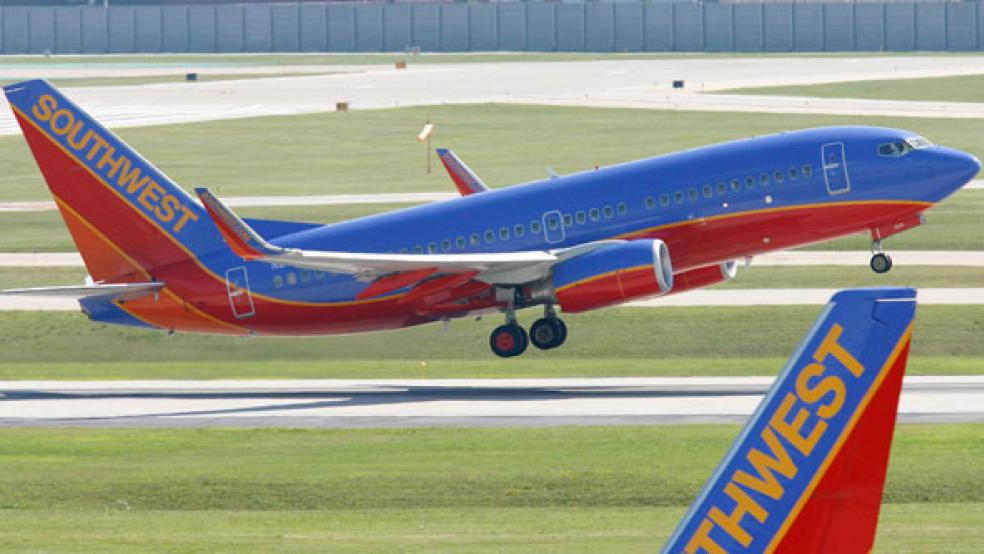As oil prices rise, so have airfares—they’re up 14 percent since 2009. But with web-based tools giving us more travel data than ever before, there are plenty of ways to still land deals on tickets. That means more money to spend on growing your business or to sock away into the 401k. Here are seven tips for saving money when planning your next flyaway adventure.
RELATED: 12 Things That Will Get Cheaper in 2012
1. Buy at the right time. If you avoid high volume booking times, you’ll save money. That means thinking ahead—the Airlines Reporting Corporation released a study in January concluding that in 2011, the best time to buy was six weeks before a trip. As for the day of the week to buy, many travel sites recommend Tuesdays and Wednesdays—farecompare.com pinpoints Tuesdays at 3 pm as the ideal time to get domestic tickets (through a study of its proprietary database). When shopping for a group, farecompare also advises not buying your tickets together—make each reservation separately since airline systems are set up to give everyone in your group the same, higher price even if a few cheaper seats could be had by a subset of your group.
2. Fly at the right time. George Hobica of airfarewatchdog.com says the tried and true advice still holds about when to fly. Avoid vacation time—on domestic flights, that means June 15 to September 6 and around major holidays. And the cheap travel days remain Tuesdays and Wednesdays. (Farecompare says its historical airfare database indicates Wednesdays are cheapest.) What time of day to fly? You’ll get the best fare by making yourself as uncomfortable as possible—that means taking the 6 a.m. or the red-eye and choosing connecting instead of direct flights.
3. Be flexible. The more flexible you are, the sweeter deal you’ll get. Hobica notes that being willing to fly out of an airport further from you usually will net you a better price. Especially if you’re traveling in a group, you can afford to pay the extra $150 for long-term parking if you’re saving $1000 on tickets, he says. The same holds on the other end of the flight—be willing to land at an airport further from your final destination, especially when traveling abroad. Prices to Berlin and Dusseldorf in Germany, for example, have been about a third of those to the most popular destinations, says Hobica. So if you’re going to Paris, fly into Berlin and hop the train or a low-cost connecting flight.
4. Use the right tools. By taking advantage of the fare-watching sites out there, you’ll never have to pay more than you should. Tools like the Bing Price Predictor, airfarewatchdog.com, and farecompare.com alert you to deals as they arise; yapta.com does all of that and, for certain airlines like JetBlue or Alaska, if the price drops below what you paid, they’ll detail how you can get a refund for the difference. This chart from airfairwatchdog lists the services offered on these and other sites. And many airlines have put up their own deal alert tools—another airfairwatchdog table gives links and descriptions of these. For late-breaking deals, check out lastminute.com.
5. Check the fees. Depending on your needs, luggage and other fees can take a bite out of your vacation budget. So when you compare ticket prices, look at your total costs. The site luggagelimits.com lets you compare the baggage fees that different airlines charge for a particular flight, and Smarter Travel offers a helpful (and printable) luggage fee chart. For all those other costs, this chart from kayak.com lets you compare the range of fees airlines charge, like those for meals, pets, and unaccompanied minor service.
6. Use airline perks. If you don’t have an airline credit card, get one, and if you have one, get another, says Hobica. There are great offers out there, he says—JP Morgan Chase and United, for example, have teamed up to offer the MileagePlus Explorer Card, which offers 25,000 bonus miles the first time you use it to make a purchase. A list of recommended cards is available from consumercreditcardguide.com.
After you receive your card, you’ll automatically be given a frequent flyer account. One less well-known way to build your miles, Hobica says, is to use your airline’s online shopping mall to make web purchases—airline malls can include big retailers like Walmart, Target, and the Apple Store. Doing so earns you miles and ensures that there’s activity on your account, which prevents the airline from expiring your miles. (Even a tiny purchase registers as activity on the account.) Airfarewatchdog provides a list of online airline shopping malls.
7. Get information from a range of sources. Don’t underestimate the value of online travel sites like Kayak, Orbitz, Expedia, and others. Deals do pop up there, especially tickets on which the cheapest option turns out to be two one-way flights—flying out on one carrier and back on another—those deals won’t show up on the airlines’ own websites. Even so, sometimes the best prices still are on the airlines’ sites. So if you’re serious, sign up to get price drop alerts from as many sources as you’ve got time to keep up with. And don’t forget to check the sites of low-cost airlines that don’t usually list their ticket prices elsewhere (like Southwest, JetBlue, Allegiant, and Ryanair).



